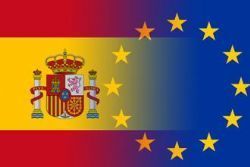- Business
- Childbirth & Education
- Legal Formalities
- Motoring
- Other
- Pensions & Benefits
- Property & Accommodation
- Taxes
- Airports and Airlines Spain
- Paramount Theme Park Murcia Spain
- Corvera International Airport Murcia Spain
- Join us for Tea on the Terrace
- When Expat Eyes Are Smiling
- Meet Wincham at The Homes, Gardens & Lifestyle Show, Calpe
- QROPS 2014
- Spain Increases IHT in Valencia & Murcia
- Removals to Spain v Exports from Spain
- The Charm of Seville
- Gibraltar Relations
- Retiro Park : Madrid
- Community Insurance in Spain
- Calendar Girls
- Considerations when Insuring your Boat in Spain
- QROPS – HMRC Introduces changes that create havoc in the market place
- QROPS – All Change From April 2012
- Liva & Laia : 15th November

An increase in the retirement age and changes to working hours - Eurogroup president Jeroen Dijsselbloem believes Spain's massive unemployment rate requires more action and has called on the Spanish government to adopt these further measures.
Nevertheless, the Dutch leader of euro-zone finance ministers, who met with Spanish Prime Minister Mariano Rajoy at La Moncloa palace on Monday morning, did highlight that Spain has started "to turn the page" and had started on the road to recovery. He added that there would be "some growth in the euro zone in 2014" and believes Spain could be one of the motors of that growth.
At a breakfast press conference in Madrid on Monday, Dijsselbloem called on Spaniards to work "longer and harder" in reference to the retirement age increase needed for it to maintain the European social model. "One has to adapt to the new economy reality," he said.
An aging population means employment policy needs to focus on the young, he added.
"Unemployment is very high, above all for young people, and more labor reforms are needed because new growth is necessary," the Dutch finance minister argued.
He stressed all EU member countries needed to continue making structural reforms. In Spain's case that meant trying to create a "more dynamic" labor market with "more modern" ways of hiring workers.
Dijsselbloem praised the consolidation measures carried out so for by the Spanish government, saying they were "not easy" to undertake and that the task was not yet finished.
Even though there was reason to be optimistic about the new economic forecasts for the EU, he said: "You still cannot say that we are safe."
The Eurogroup president thinks it will be difficult for euro-zone countries to return to the same levels of growth seen before the crisis, since the conditions for accessing credit have changed and it will not be so easy to borrow in the future.
From now on the new goals for the EU would be sustained economic growth and maintaining the European social model, he added.










